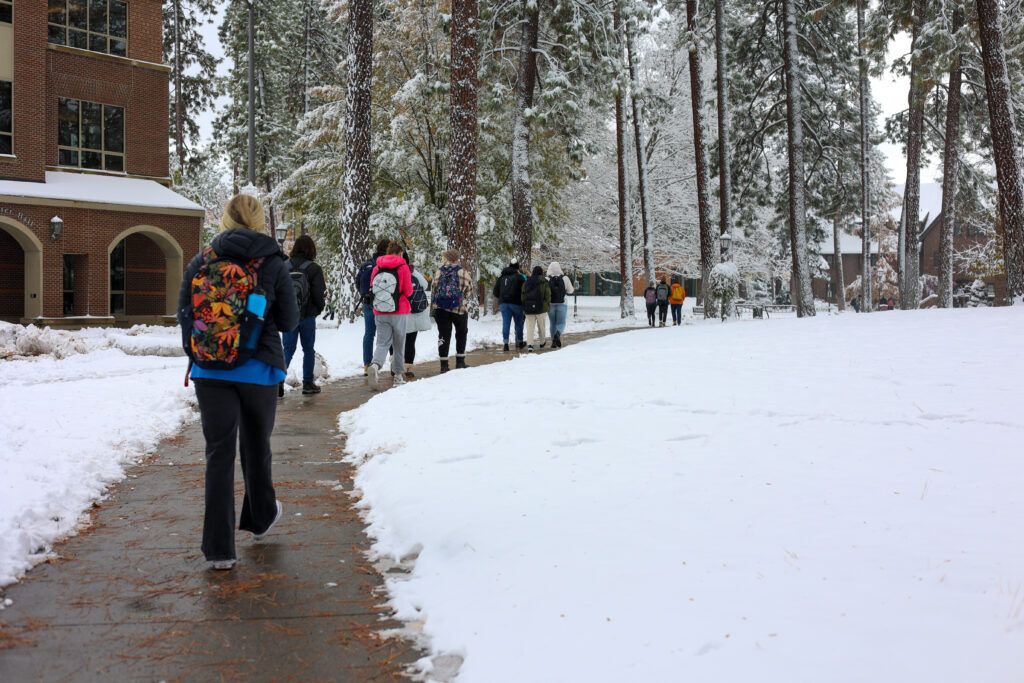
On Friday, Nov. 4, students woke up to the second snowfall of the season. Going into the weekend, the National Weather Service alerted students of the possibility of high winds with gusts up to 50 mph.
As a safety precaution, students were advised to stay indoors from Friday evening to Saturday afternoon and were informed of the dangers of tree limbs falling or debris blowing. Power outages were also predicted to occur.
“We only send out [weather] announcements if we think there’s a good chance of something being dangerous,” said Brandon Pyle, Whitworth grounds manager.
During the storm, the snow proved to be more damaging than the wind, said Pyle. Since many trees had not dropped their leaves, the moisture and weight of the snow caused many limbs to snap and some trees to lean over.
“The most notable [hazard] from this last storm was a big pear tree in front of Weyerhaeuser that was leaning over the pedestrian sidewalk,” said Pyle.
Various trees on campus needed to have faulty limbs cut, and the sidewalks around the overhanging trees were taped off until the snow melted, to ensure student safety, added Pyle.
The campus arborist has protocols in place to maintain and regularly check the health of all the trees. This includes evaluating trees that are damaged by the snowfall.
First-year student, Jin Yue Trousil said she was concerned about walking underneath some of the trees since she realized that the snow was wet and heavy and she witnessed big limbs fall.
“The [groundskeepers] do a really good job of keeping all the students safe, and the pathways clear,” said Trousil.
Fortunately, no one was hurt in the storm. A few cars were hit by a falling limb, but there was no damage reported, said Pyle.
In the past, Pyle said there have been severe windstorms where trees have fallen and caused damage. In 2015, there was a windstorm that knocked down 90 Ponderosa trees.
“I always worry about students not taking our warnings seriously enough or not seeing them at all…” said Pyle.
In the event of high winds, Pyle said to watch out for the straining and popping sound tree branches make when breaking and to check if the tree branches’ angles are in their normal positions.
Pyle said that, above all, students should use common sense and demonstrate caution when trying to evaluate if wind or snowfall is dangerous.
If students see a hazard on campus they should immediately call facilities at 509.777.3254.
“Extra eyes always help, and we never mind people calling us, even if we already know about it,” said Pyle.

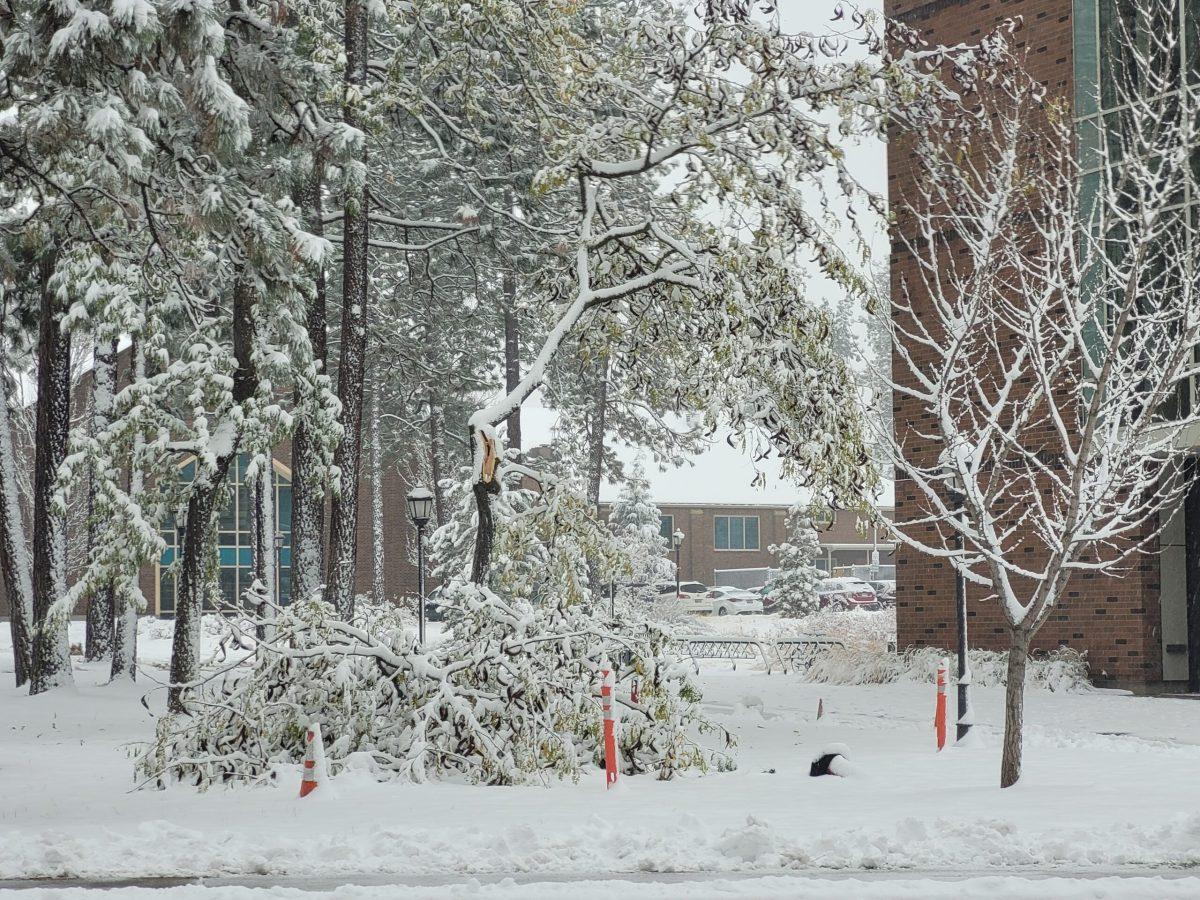






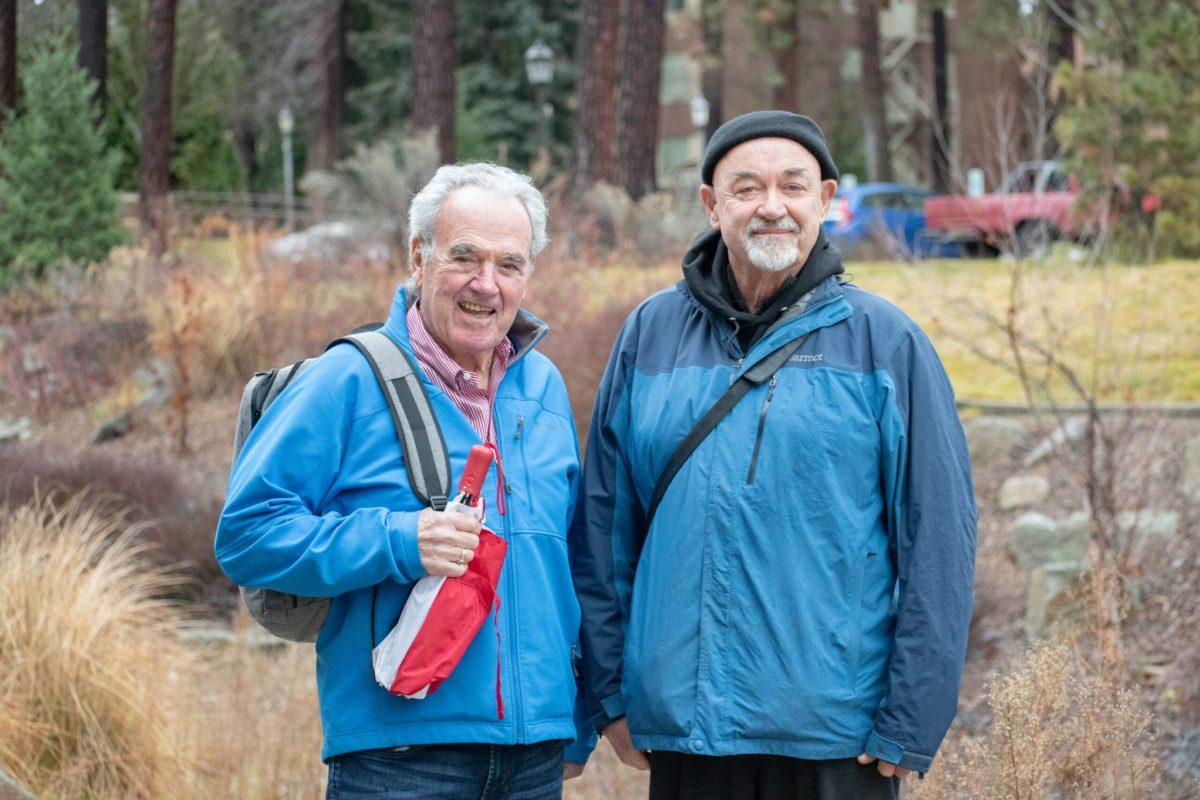

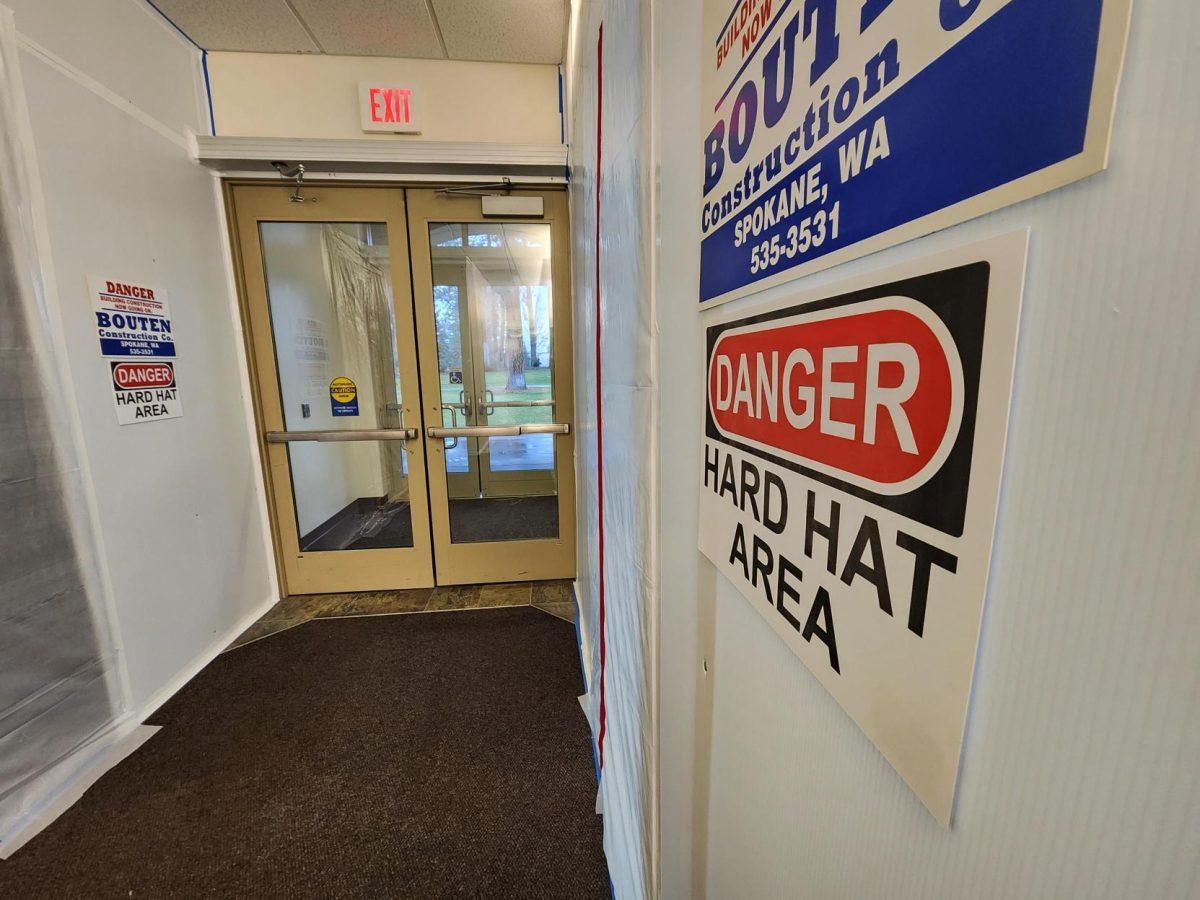
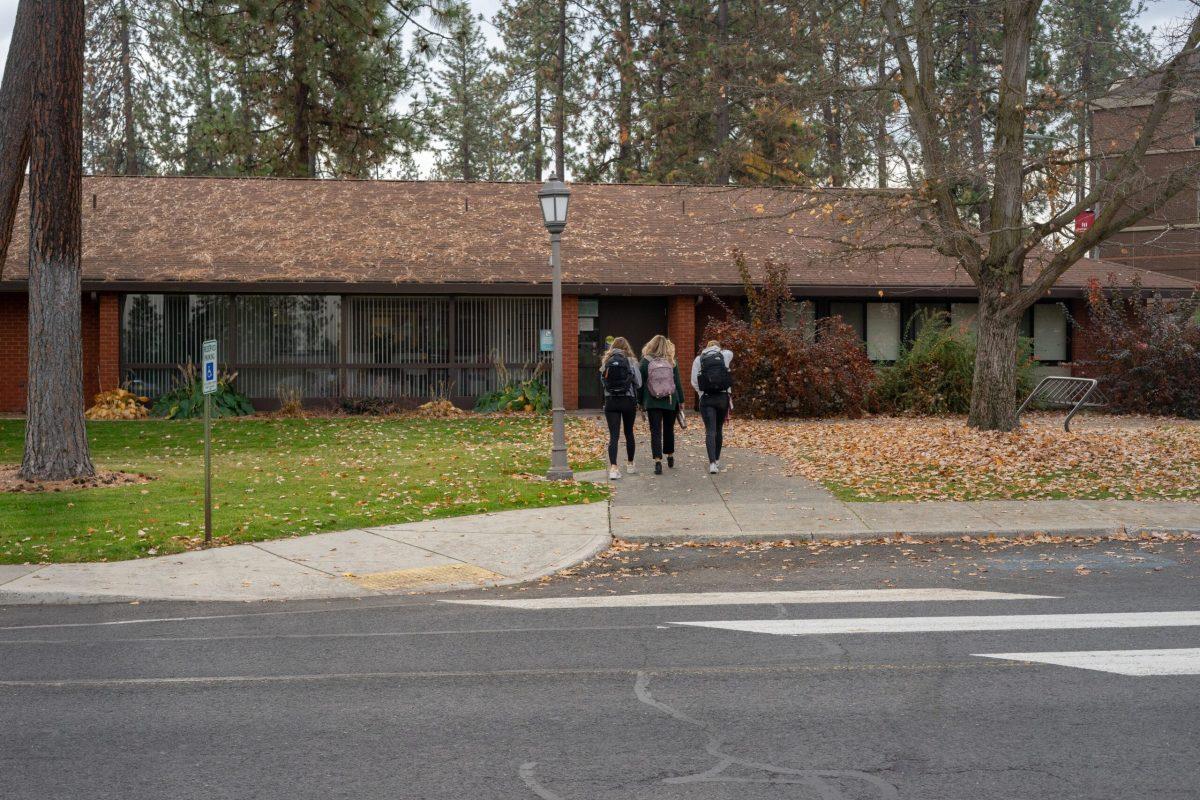

 Spokane?
Spokane?